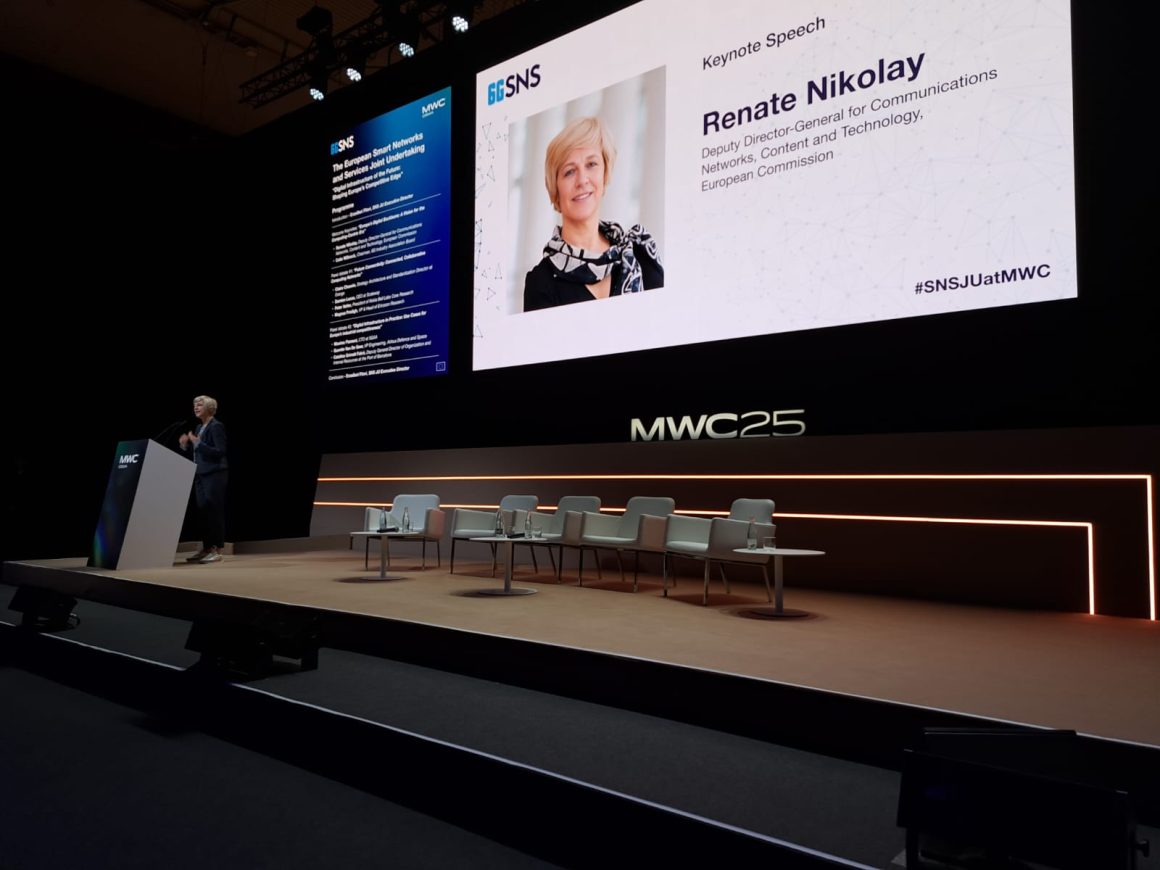“It’s really time to act. There’s no time to lose,” emphasised Renate Nikolay, Deputy Director-General for Networks, Content and Technology at the European Commission. In many ways, this sums up the view from Europe and from other countries, as we can see in this year’s MWC.
Europe First
Policy positions can be fairly dry, but the Commission and its organs are at MWC in force, one reason for which was put clearly by Colin Willcock, Chair of the 6G-IA.
“When it comes to ICT, Europe is looking for places where we can take a lead. Unfortunately, we don’t have many of them, but telecoms is one where we have a chance.”
Technology sovereignty is another. Apart from Nokia and Ericsson, Europe doesn’t have a leading presence in many aspects of the value chain. Microelectronics, chipsets, AI, cloud… in all of these, Europe does have companies that play a part, but typically very much a minor one.
As a matter of regional pride that might sting, but it’s secondary to some of the security – and especially national security – issues.
Nikolay referred to the need to be less reliant on “Non-EU Cloud providers,” while Henna Virkunen, Executive Vice President of the European Commission, emphasised the resilience and security benefits of “Avoiding components from high-risk suppliers.”
If this seems familiar, it should be. It seems as though some ideas have crossed the Atlantic. We can only speculate whether the events of the last month have emphasised that risk might come from anywhere. However, in Europe, it appears to be a catalyst for some aggressive industrial policy.
Spending Power
Virkunen made a strong commitment to building Europe’s capabilities almost across the board. However, there were a few areas of particular focus.
“Investment in computing infrastructures is crucial,” she noted. This would fit alongside fibre and 5G in creating a foundation. So far, so not new.
What was striking was the investment Virkunen suggested the European Commission put into building the region’s AI capability. “200 billion euros,” Virkunen said.
Nikolay, too, referred to an EU Cloud and AI Act, which would open up a considerable fund “A bit like the CHIPS Act” for, well, cloud and AI. So that jackpot may need to be spread around a larger pool of companies than might, at first, have seemed the case.
However, if there is less money for AI start-ups, there are other benefits. Nikolay promised “AI factories” where start-ups were placed in locations with supercomputers to accelerate their growth.
Rules Change
Alongside the money, Virkunen and Nikolay both emphasised the regulatory changes on the horizon.
“Our guiding star will be simplification,” Virkunen noted, suggesting more than once that red tape was tangling up all these exciting startups and preventing them from reaching scale.
However, simply taking a chainsaw to regulations is not on the menu. Instead, we are looking at
- Simplification by coordinating spectrum across countries;
- Creating a unified front on spectrum availability and allocation; and
- Enabling sandboxes where start-ups could experiment without the full reporting and operational burden of existing regulations.
What’s more, it was made very clear that regulations would be made with ‘European values’. For example, Willcock pointed out that regulations on data privacy and AI ethics would instead filter through to the technical standards. In fairness, they would have to for those rules to mean much.
More moving and shaking?
While all of the above might sound welcome and, to some, long overdue, is there scope for more activity from the EU to shape the coming generation of telecoms? Orange’s Claire Chauvin thinks so.
“The EC is strong in helping on research; less so in supporting us on standards,” she noted.
Meanwhile, competition is becoming stiffer. The EU isn’t the only place with ambitions. India’s Communications Minister Jyotiraditya Scindia made clear in a keynote that India’s plans are just as aggressive as the EU’s.
“We followed in 4G. I believe we’re in a position to lead the world on 6G,” he said.
So perhaps the Commission is right – there is no time to lose.



